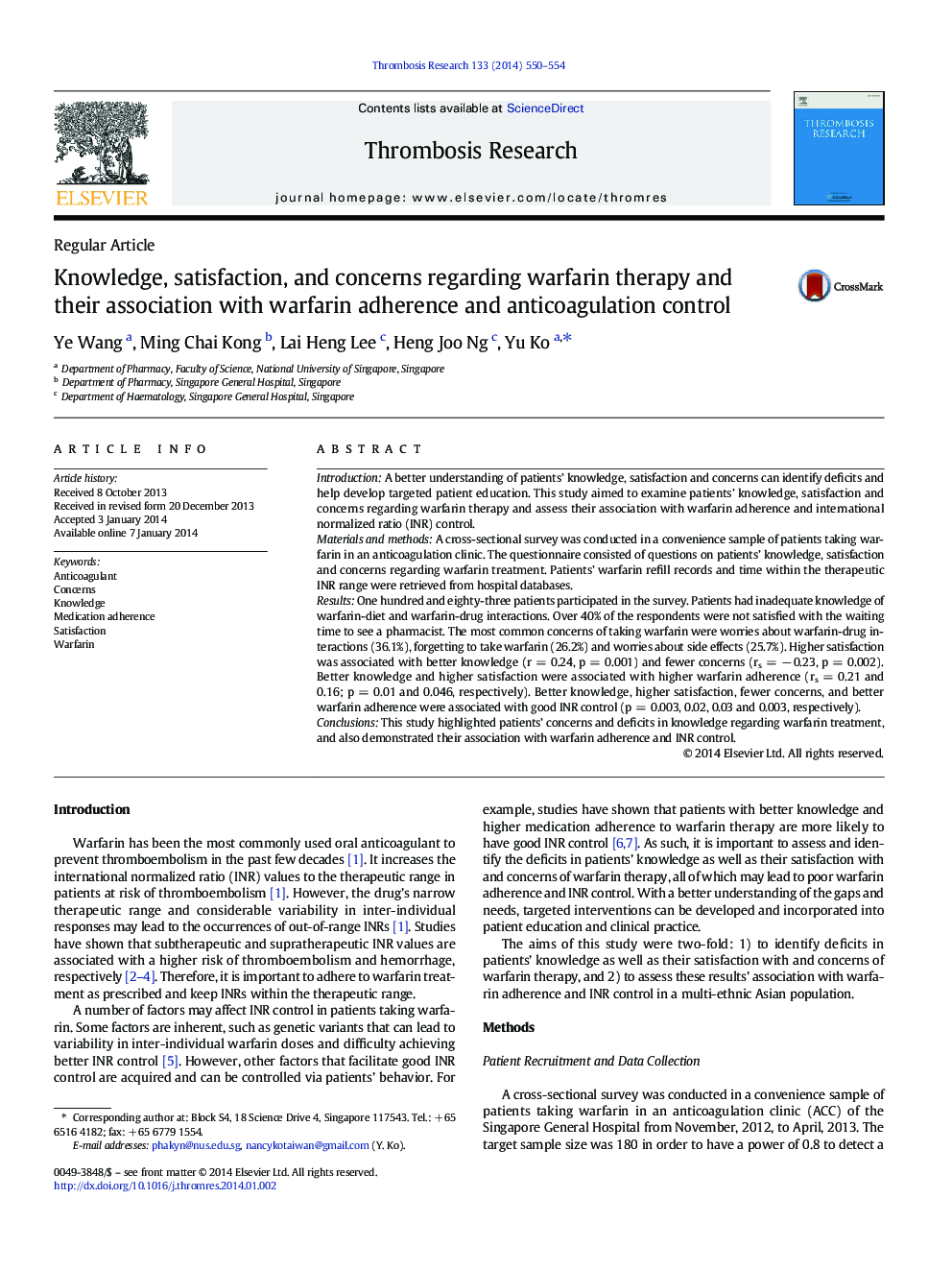| Article ID | Journal | Published Year | Pages | File Type |
|---|---|---|---|---|
| 6001376 | Thrombosis Research | 2014 | 5 Pages |
IntroductionA better understanding of patients' knowledge, satisfaction and concerns can identify deficits and help develop targeted patient education. This study aimed to examine patients' knowledge, satisfaction and concerns regarding warfarin therapy and assess their association with warfarin adherence and international normalized ratio (INR) control.Materials and methodsA cross-sectional survey was conducted in a convenience sample of patients taking warfarin in an anticoagulation clinic. The questionnaire consisted of questions on patients' knowledge, satisfaction and concerns regarding warfarin treatment. Patients' warfarin refill records and time within the therapeutic INR range were retrieved from hospital databases.ResultsOne hundred and eighty-three patients participated in the survey. Patients had inadequate knowledge of warfarin-diet and warfarin-drug interactions. Over 40% of the respondents were not satisfied with the waiting time to see a pharmacist. The most common concerns of taking warfarin were worries about warfarin-drug interactions (36.1%), forgetting to take warfarin (26.2%) and worries about side effects (25.7%). Higher satisfaction was associated with better knowledge (r = 0.24, p = 0.001) and fewer concerns (rs = â 0.23, p = 0.002). Better knowledge and higher satisfaction were associated with higher warfarin adherence (rs = 0.21 and 0.16; p = 0.01 and 0.046, respectively). Better knowledge, higher satisfaction, fewer concerns, and better warfarin adherence were associated with good INR control (p = 0.003, 0.02, 0.03 and 0.003, respectively).ConclusionsThis study highlighted patients' concerns and deficits in knowledge regarding warfarin treatment, and also demonstrated their association with warfarin adherence and INR control.
